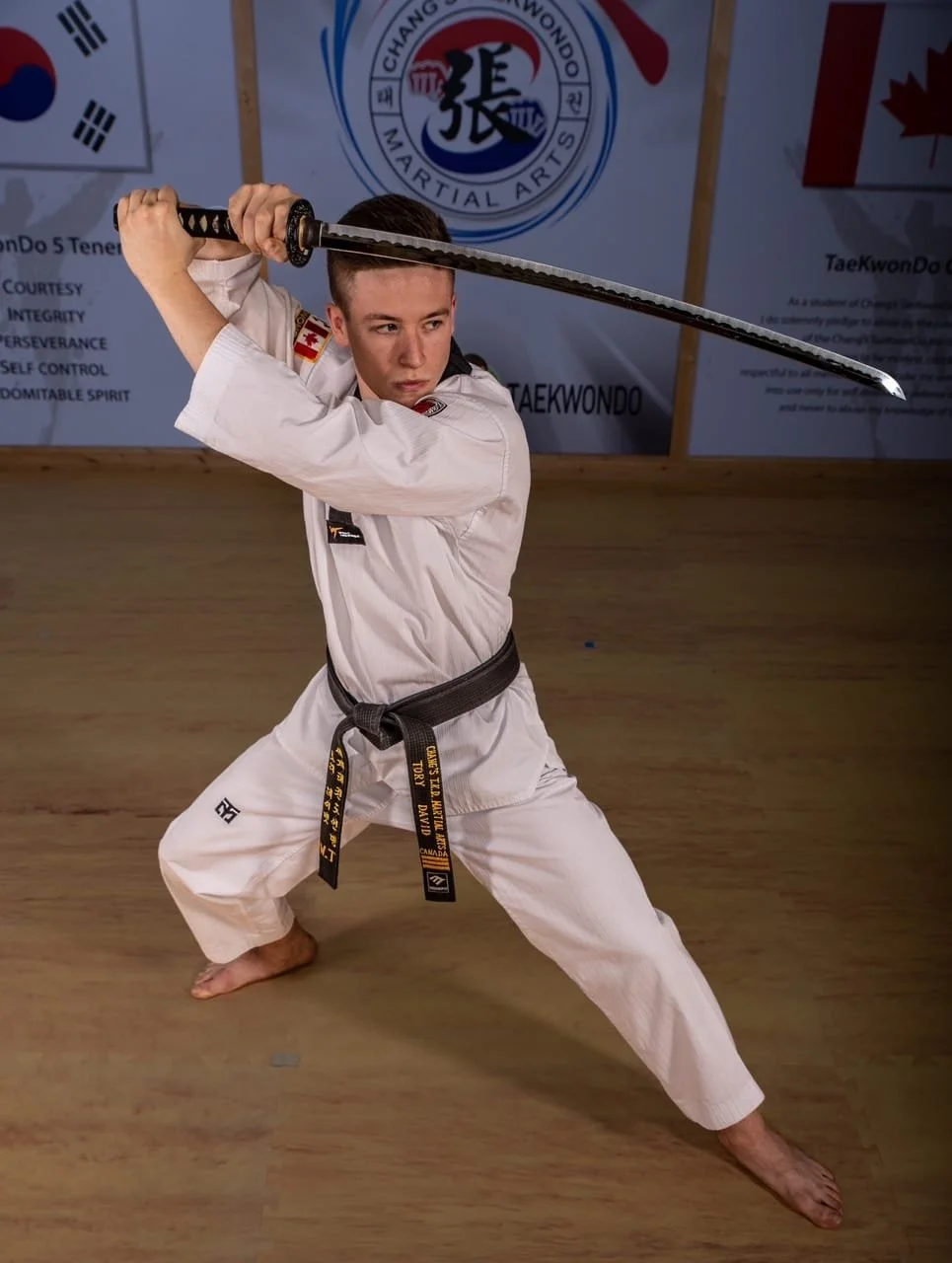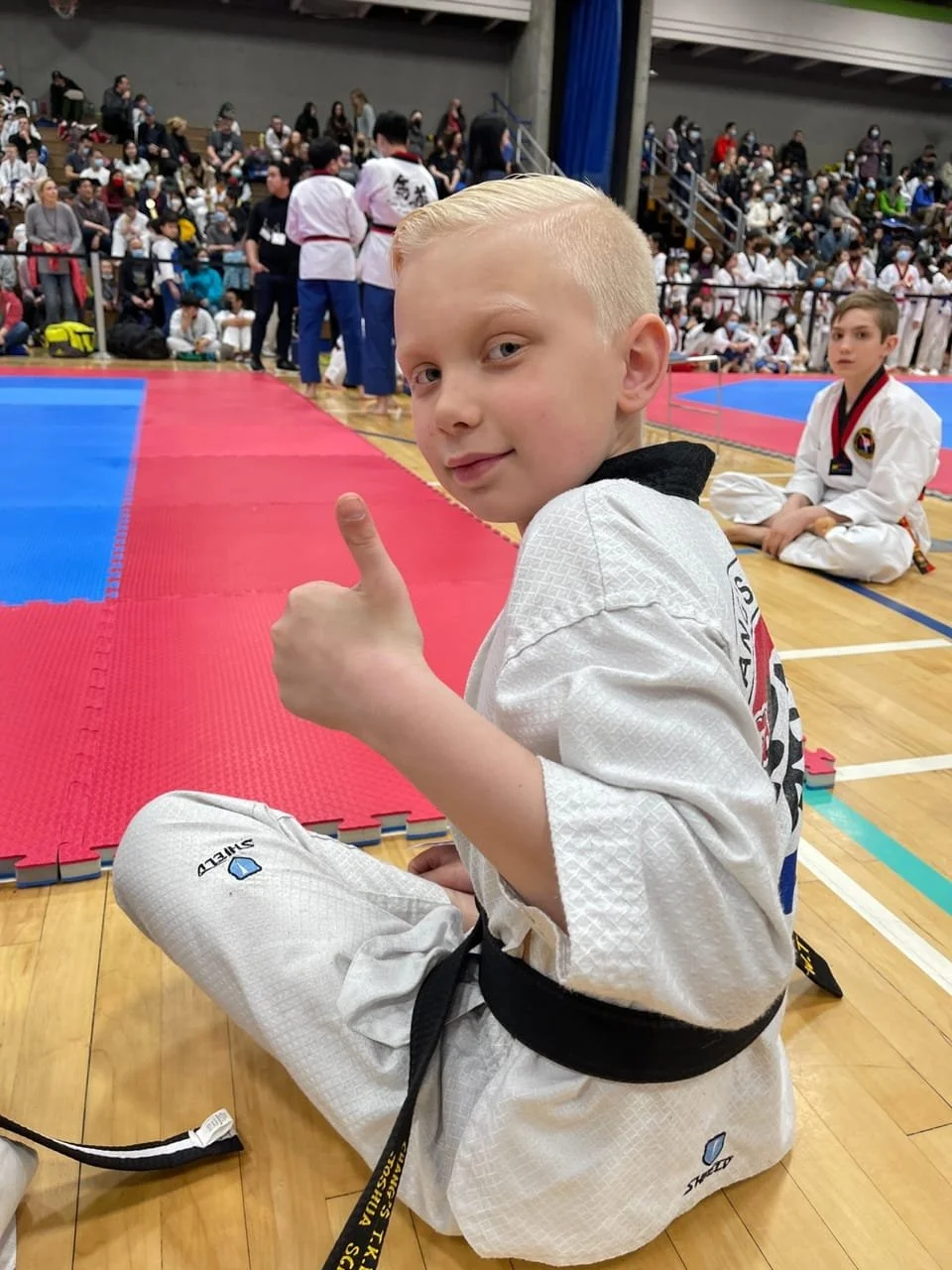Importance of Independent Practice in Taekwondo
At Chang’s Taekwondo in South Surrey, Cloverdale, Tsawwassen, Aldergrove, Mission, and Abbotsford, our instructors are committed to guiding students through their Taekwondo journey, focusing on discipline, skill-building, and personal development. While the structured environment of the dojang is crucial, independent practice is equally important for students’ growth as martial artists. What students do outside the dojang is often what shapes their true abilities.
Independent practice helps refine skills, build muscle memory, and deepen understanding of Taekwondo techniques. By practicing outside of class, students can reinforce what they've learned, allowing for focused, individualized improvement. This is key for anyone who wants to take their training to the next level.
A primary benefit of solo practice is the ability to focus on fundamentals like poomsae (forms), kicking techniques, and blocking. These are the building blocks of Taekwondo and practicing them outside of class improves proficiency. When practicing alone, students can break down each movement, paying close attention to form, precision, and timing. Repetition at home helps develop muscle memory, which is essential for executing techniques without thinking. This becomes particularly important in sparring and forms, where speed and accuracy matter most.
Solo practice also allows students to address specific areas needing improvement. Whether it's improving the height of a kick or the flow of a poomsae, independent practice offers flexibility to slow down and make adjustments. This personalized feedback leads to faster improvement and a deeper understanding of each movement.
Moreover, independent practice encourages students to take ownership of their training. In the dojang, students follow the instructor’s guidance, learning in a group setting. While this is essential for teamwork and learning from others, solo practice gives students the chance to assess their own skills and set personal goals. This builds self-reliance and confidence. As students track their progress, they realize that their success is the result of their own effort, which further boosts their confidence in both techniques and sparring.
Independent practice also teaches personal responsibility. Taekwondo, like life, requires hard work and consistent effort. By committing to solo practice, students develop a strong work ethic that benefits them both in the dojang and beyond. This sense of responsibility fosters a commitment to continuous improvement and personal growth.
Taekwondo is as much a mental discipline as it is a physical one. Independent practice strengthens both the body and the mind. When practicing alone, students must focus intensely, as there is no instructor guidance or group support. This demands self-motivation and concentration, sharpening the mental aspects of Taekwondo. Students learn to stay focused, persevere through frustration, and problem-solve when they encounter challenges. This mental toughness is one of the greatest skills Taekwondo imparts, helping students build resilience and determination.
In addition to mental focus, independent practice keeps students motivated. Training outside of class ensures that students stay connected to their practice, even when they’re not in the dojang. Without solo practice, it's easy to become complacent. But when students set aside time for independent training, they maintain momentum and stay engaged in their personal growth. It’s this dedication to improvement that sets high-level athletes and martial artists apart from those who take their training less seriously.
While independent practice is crucial, instructors are always available to offer guidance and support. If students have questions or need help refining techniques, instructors are happy to assist. Whether through one-on-one sessions, extra practice time, or feedback during class, instructors ensure students stay on track and make the most of their solo practice. The more questions a student arrives to class with the better, the instructors love taekwondo and are always excited to share their passion!
In conclusion, independent practice is a vital component of Taekwondo training. It allows students to refine their skills, build confidence, strengthen mental focus, and stay motivated. The lessons learned through solo practice—discipline, perseverance, and self-reliance—extend beyond the dojang, benefiting students in all areas of their lives. While instructors provide the foundation, it is through independent practice that students truly grow, both as martial artists and as individuals. Therefore, it is essential for every Taekwondo student to take ownership of their progress and commit to becoming the best version of themselves, both inside and outside the dojang.



